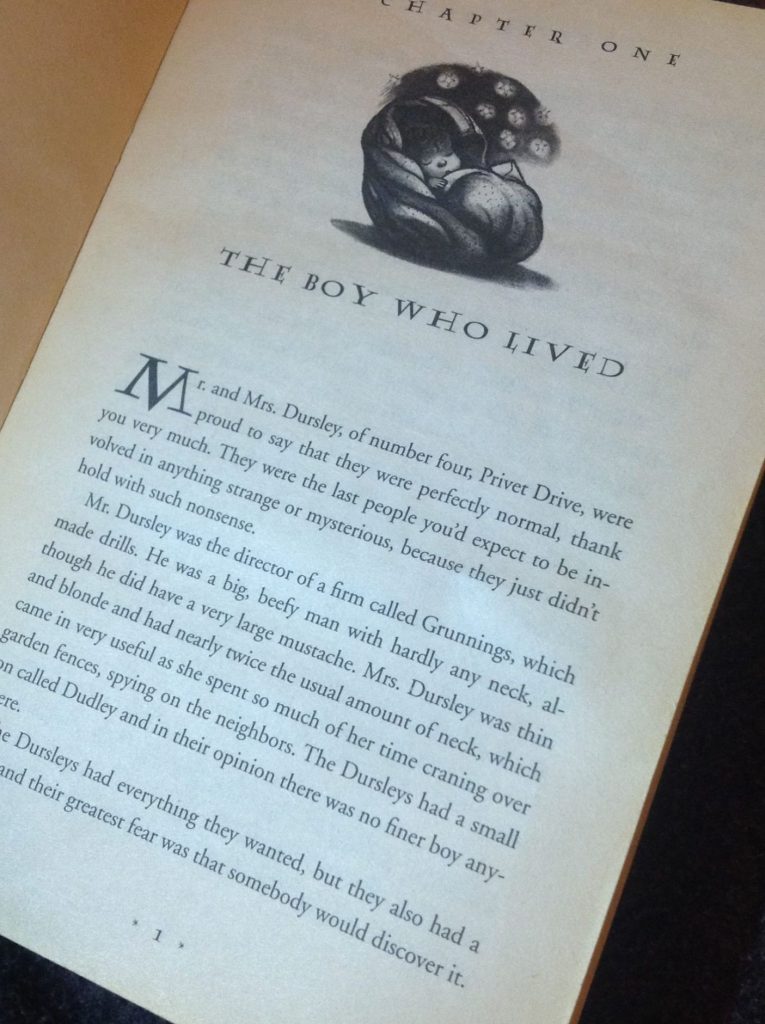 When we label something “sacred,” that designation often changes how we engage it. Discussing Harry Potter and the Sorcerer’s Stone as a sacred text, the podcast Harry Potter and the Sacred Text illustrates this engagement and the ways readers interpret from their own experiences. Both hosts in this podcast have a particular interest in the category of the sacred. Vanessa Zoltan is a Humanist Chaplain at Harvard University, and Casper ter Kuile is studying to minister to those who identify as non-religious.
When we label something “sacred,” that designation often changes how we engage it. Discussing Harry Potter and the Sorcerer’s Stone as a sacred text, the podcast Harry Potter and the Sacred Text illustrates this engagement and the ways readers interpret from their own experiences. Both hosts in this podcast have a particular interest in the category of the sacred. Vanessa Zoltan is a Humanist Chaplain at Harvard University, and Casper ter Kuile is studying to minister to those who identify as non-religious.
They explain the social nature of sacrality (think Durkheim), “The text in and of itself is not sacred, but is made so through our rigorous engagement.” Describing their podcast, they hope “to glean what wisdom and meaning we can make from J.K. Rowling’s beloved novels.” That statement contains an intriguing ambivalence, as the verb “glean” generally connotes collecting something that exists while the phrase “we can make from” puts the creation directly in their hands, which reflects the tension between socially constructed sacrality and the common assumption that meaning comes from a text.
Declaring the text to be sacred encourages the slow, careful reading that they present in the podcast, but this respectful attitude also can generate a different acceptance of the narrative. In discussing loneliness in episode 2, they surmise that people who experience a traumatic childhood
can’t envision a future for yourself that is superior than the one you are currently in, but Harry seems to have the sense that there is something better than this.
It struck me that a critical reading of the novel might question Rowling’s narrative as unrealistic, making Harry too hopeful despite his trauma, but treating the text as sacred encourages the readers to accept the story as it is and see characters as exceptional rather than unrealistic. While they claim that they do not see the text as perfect, their discussion suggests that a sacred text is not questioned in the same way that a typical novel often is.
Engaging one chapter of the novel in each episode, they further illustrate how an interpretation of any text, sacred or not, derives more from the reader than the text itself. For each episode they choose a theme such as generosity (episode 3), promise (episode 8), and goals (episode 10), that reflects the issues and values that they bring to the text. Their discussions of these themes, moreover, frequently relate the events in the chapter to their own experiences with childhood birthdays or a life-threatening fall, seeing the theme through their own knowledge and experiences. They also identify allegorical meaning, such as connecting Dudley’s desire for 36 birthday gifts to the symbolism of that number in some groups that identify as Jewish. At this point, it is no longer important what JK Rowling thought when she inserted the number 36 into the passage, as the meaning is a construction of the reader.
Even their closing practice of offering a blessing to a particular character demonstrates the centrality of their own interests. Vanessa in episode 10 offers a blessing to the Fat Lady in the painting, respecting her commitment to protect Gryffindor while acknowledging how women frequently are dismissed because of their body. In other words, the text becomes the vehicle for discussing the interests and concerns of the participants.
While identifying a text as sacred encourages the reader to treat it differently, the meaning that the reader constructs becomes a product of their own interests, experiences, and imagination, as is true with any text. In this element, this podcast is no different from other constructions of meaning and relevance in literature, sacred or otherwise. Whether or not you like Harry Potter or the meanings that Zoltan and ter Kuile generate, the podcast illustrates the significance of labeling something “sacred” and the ways applying that label and constructing meaning both are a product of the reader, not the text itself.